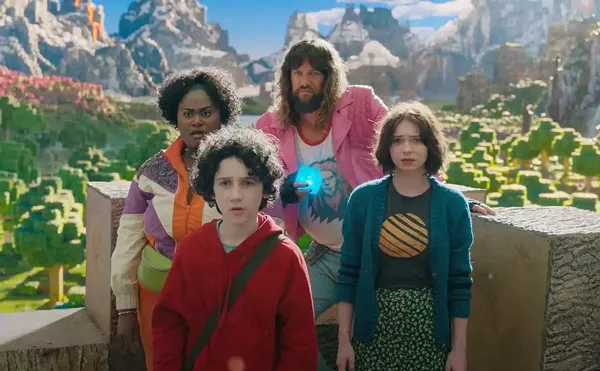Like his last film Ulysses Gaze (1995), Greek writer-director Theo Angelopoulos’s Eternity and a Day wears its solemnity on its sleeve. With its long, brooding and often pictorially beautiful takes, its use of a rather elemental poetic language (ill-served, one suspects by translation), and its central theme of death and memory, the whole enterprise seems calculated to lull the viewer into a reflective dream state. Joyful emotion may appear in an Angelopoulos film, but its usual exhilaration is placidly observed; as for humor’s bite of irony, forget it.
Actually, Eternity is a much more accessible film than Gaze, having a much simpler story and a more sympathetic protagonist (Harvey Keitel moved through Gaze like a barely animated lump). Taking place during (and in) the space of one day, it tells the story of a dying writer and poet named Alexander (Bruno Ganz), who is haunted by all the things he hasn’t accomplished, by his failed marriage to his late wife Anne (Isabelle Renauld), by his distant relationship to his still-living mother. Throughout his day of memories, Alexander wanders between present and past, having rueful conversations with his dead wife, attending long-ago family gatherings, even encountering a 19th century poet whose unfinished magnum opus he has become obsessed with.
Obviously, there’s a strong whiff of Bergman’s Wild Strawberries about this scenario – another similarity is that even when he physically enters his past reveries, Alexander remains an old man – though instead of the thin Northern light of the melancholy Swede we get sun-baked and rain-drenched Southern vistas. And while Bergman’s dying man of letters confronted a trio of young people with bemused detachment (though he couldn’t prevent them from triggering more memories), Alexander’s befriending of a young street urchin leads to an involvement which brings us to what is probably as close as Angelopoulos will ever come to a happy ending. Though, of course, a solemnly happy one.






